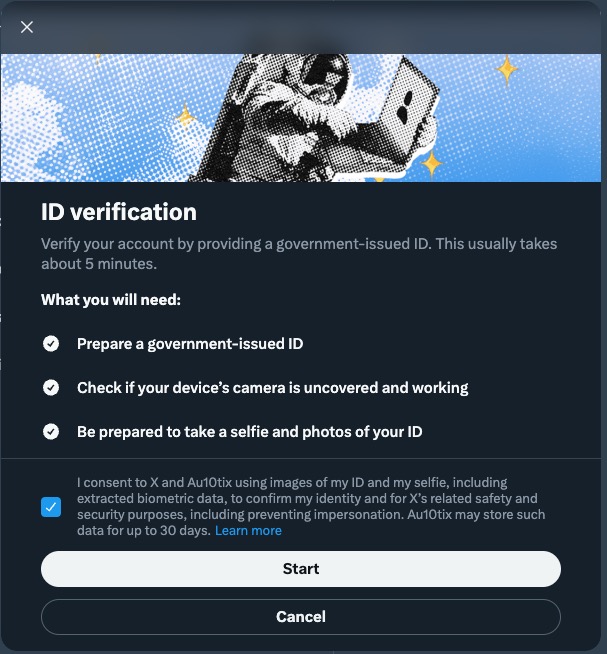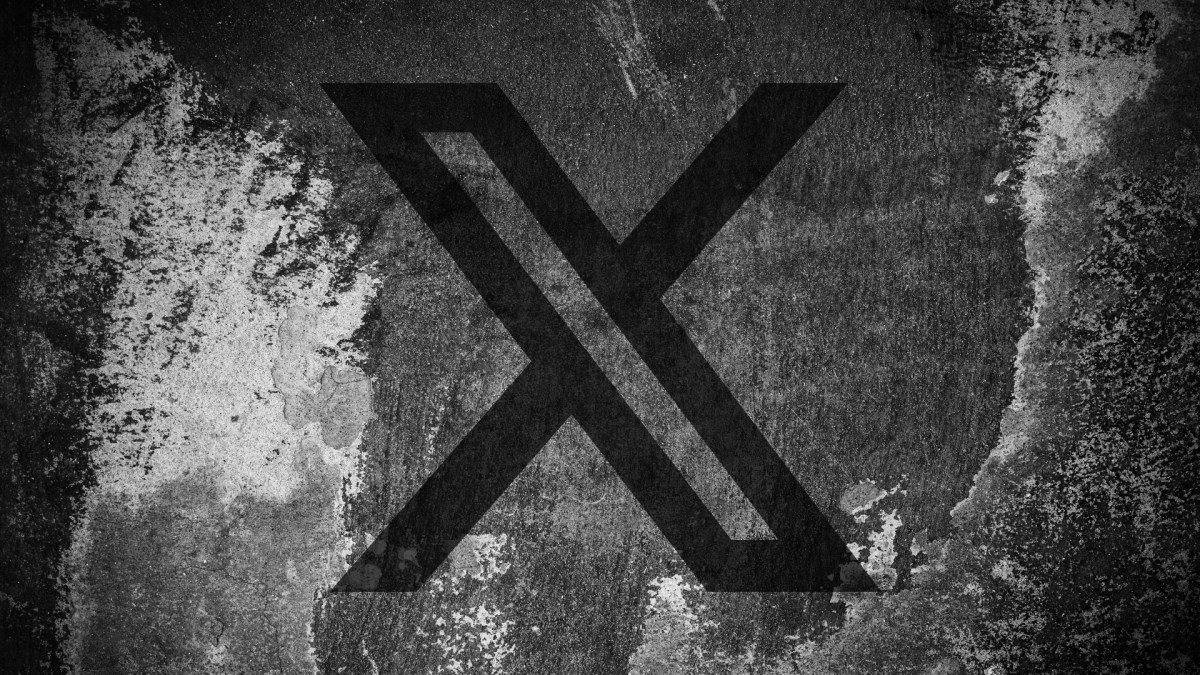X, formerly Twitter, has launched government ID-based account verification for paid users to prevent impersonation and give them benefits such as “prioritized support.”
The social network has partnered with Israel-based Au10tix for identity verification solutions. The pop-up for ID verification indicates that the Au10tix could store this data for up to 30 days.

Image Credits: Screenshot by TechCrunch
X’s support page for verification suggests that, while ID verification is available in “numerous countries,” it is not available in the European Union (EU), the European Economic Area (EEA), and the United Kingdom. This is most likely because of the stringent data protection laws of the region.
The ID-based verification seems like a preempted step that currently leads to almost no benefits. The company said it might age-gate some content based on the age derived from the ID.
“X currently focuses on account authentication to prevent impersonation and may explore additional measures, such as ensuring users have access to age-appropriate content and protecting against spam and malicious accounts, to maintain the integrity of the platform and safeguard healthy conversations,” it said.
Users who go through the verification badge will have a note that says that their government ID was verified. But you can only see it when you click on the blue checkmark on the profile page. The company also said that users with ID verification will get “prioritized support from X Services,” but it is hard to understand what this means.
Notably, last month, the company rolled out a way for paid users to hide their checkmarks from their profiles.
X said that, in the future, it plans to expedite the review process for checkmarks if a user verifies their IDs. Plus, they will get to make frequent changes to their names, usernames or profile photos without losing the checkmark.
The company is currently offering ID-based verification for paid users only. Ironically, X talks about reducing impersonation and spam but doesn’t offer verification tools to all users.
In April, Twitter discontinued its legacy verification program and removed checkmarks from accounts. But since that caused a lot of chaos, the company reinstated the checkmark for top accounts.
Last month, the social network changed its privacy policy to add that it has the ability to capture users’ biometric data, education and job history.
“This will additionally help us tie, for those that choose, an account to a real person by processing their government-issued ID,” X said in a statement to Bloomberg at that time. “This will also help X fight impersonation attempts and make the platform more secure.”









